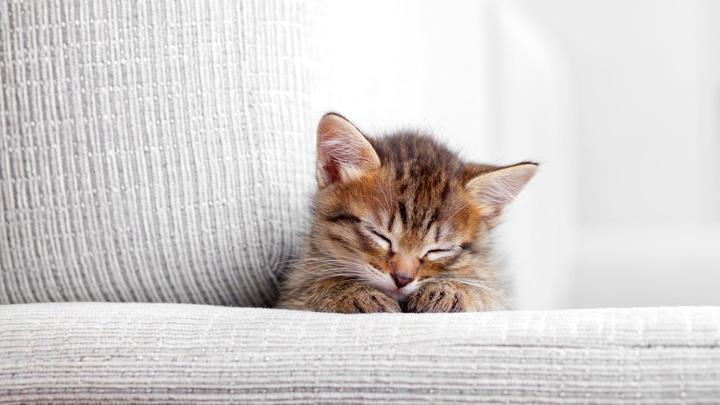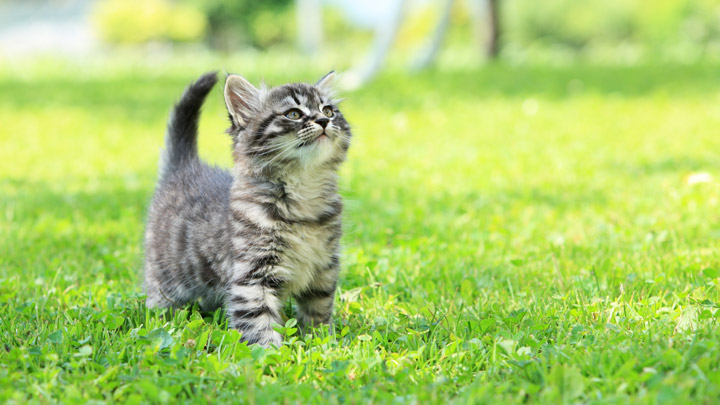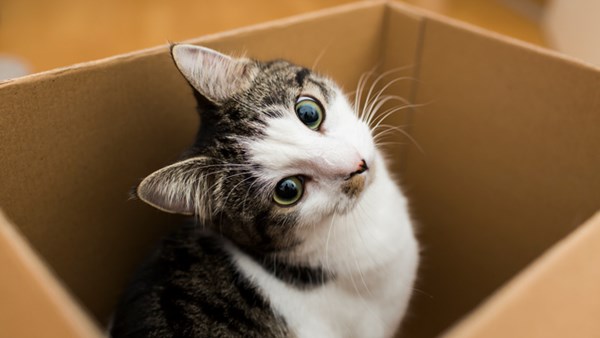Caring For Your New Kitten
Key Priorities
New kittens are so much fun, but there are some important things to remember amid all the excitement. Read our kitten advice to find out more.

Introductions
You will most likely have already spent some time preparing things for your new kitten; where they will eat, sleep, where you will position their litter tray. When the day finally arrives, it’s worth remembering that the transition will be overwhelming for even the most confident kitten.
Take it slowly, allow them time to explore, better to start with a single room rather than the whole house. You should also ensure that any small gaps are secured. Overwhelmed kittens have a habit of squeezing into the smallest gaps and refusing to be lured out.

What next?
While you are settling your kitten in, the list below highlights a few things that you need to think about to ensure that your new kitten stays happy and healthy.
1. Health Check
A once over by our vet or nurse should be set-up as soon as possible. This allows us to carry out an examination of your new kitten. This will give you peace of mind that they’re healthy; it’s also an opportunity to get advice on settling your kitten in - we’ll be happy to answer any questions on things such as nutrition, toilet training, toys etc.
Medivet are pleased to be able to offer a complimentary kitten health check. Find out more here.
2. Pet Insurance
Medivet doesn’t sell pet insurance, but we always recommend that you arrange some cover as early as possible. It's a good idea to arrange cover for your kitten from a young age, that way if there are any issues in the early days, you will already have cover.
There’s a good choice of pet insurance providers, so as with most things - it’s worth researching. We’ve got some advice to get you started – read more here. You should also talk to your vet about free 4-week cover.
3. Vaccinations
Many pets will have had an initial vaccination via the breeder, make sure that you request the details as your vet will need this when arranging their follow-up vaccinations.
Your kitten’s second vaccination will need to be scheduled for 12 weeks of age, and the third and final vaccination at 16 weeks of age. We’ve got more information on vaccinations here.
4. Microchipping
We always recommend that you get your kitten microchipped as soon as possible; it’s not law for cats, but it can save a lot of heartache. It’s a quick and simple process that takes seconds and can make all the difference should your new kitten escape. Further details here.

5. Defleaing and worming
Regular worming of your new kitten is important from an early age. Most kittens are born with worms that have been passed on from their mother. Early defleaing and worming will ensure that these are quickly eliminated.
Defleaing and worming needs to happen all-year round. It’s a common misconception that you only need to protect your pet in the summer months. Although fleas are more active in the summer months, overall parasite protection is essential all year round.
6. Socialisation/Kitten Play
Socialisation of your new kitten is important, most things in your home will be new and scary to them, plus they may have been used to having their siblings around. It’s important to start slowly and not overwhelm them and only start when they are confident enough to come out of hiding.
Socialisation is about getting your kitten used to your home and family; the sights and sounds that they will come across in everyday life. The window of opportunity lasts up until your new kitten is around 16 weeks old.
Allow your kitten to explore your home at their own pace, this may be room by room or downstairs and then upstairs – it will depend on their confidence and the size of your home. If you do set them up in a room initially, make sure that they have everything that they need: food and water, a litter tray, familiar toys and somewhere cosy to sleep (or hide).
Once they are feeling more confident, only then should you start getting them used to noises around the home – things like the doorbell, the vacuum cleaner.
Playing with your kitten is a great way to help them become more confident. Kittens love to play and will happily engage in a game that takes them to places that they’ve previously been apprehensive about. Find out more about the importance of kitten play here.
This is a round-up of the some of the key priorities, but there is still lots to consider. Download our puppy and kitten guide for some pointers on other things that you should consider.
Book your complimentary kitten check today

Puppy And Kitten Checks
Get your new pet off to the right start. We’re proud to offer complimentary health checks for your new puppy or kitten under the age of one.
Learn more

Kitten Advice
Kittens are so much fun, but there are some important things to remember amid all the excitement. We've highlighted a few things that you need to think about to ensure that your new kitten stays happy and healthy.
Learn more

